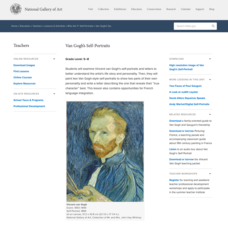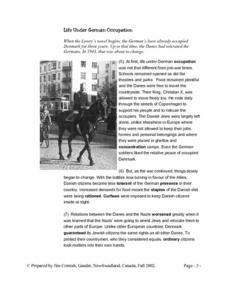Carolina K-12
Early American Settlements
What brought settlers from Europe to North America? By exploring primary sources, such as posters seeking recruits for the new lands, class members take a deeper look at these motivations. To finish, they present their findings to...
National Endowment for the Humanities
Treaty Negotiations
Let's make a deal! Drawing on work in previous unit lessons, young scholars negotiate favorable trade treaties with other nations during the early Modern Empire Era. Their work relies on previously completed activities, as well as...
National Endowment for the Humanities
Planning for Treaty Negotiations
The party is over. Now it's time to get to work! Learners acting as agents for a country during the modern Age of Empires develop proposals to negotiate trade deals between the rising global powers. Using research from previous lessons,...
National Endowment for the Humanities
Hosting a Diplomatic Reception
The toasts are written, the table is set: it's time to party! Young scholars use a role-playing activity to go toast to toast. After researching and writing toasts for their allied countries during the modern Age of Empires, individuals...
National Endowment for the Humanities
Writing a Diplomatic Toast
Here's to you! Using a role-playing activity and primary source analysis, learners discover the importance of diplomacy. Impersonating a diplomat from a great empire, they write a toast to another empire, analyzing the strengths and...
National Endowment for the Humanities
Analyzing “Intercepted Intelligence”
A good diplomat needs to know how world events can affect their country. First, class members examine the Papal Bull that excommunicated Queen Elizabeth I from the Roman Catholic Church. Then, learners playing the role of diplomat from...
National Endowment for the Humanities
Empire Intelligence Briefings
To trade or not to trade. Young diplomats put their country's best foot forward in a series of briefings for other countries about their nations. The goal is to persuade others to engage in diplomacy and trade. Using a previous lesson...
National Endowment for the Humanities
Learning about Early Modern Era Empires
You are a diplomat during the Age of Empire: prepare a briefing about your country. Young scholars take on the challenge using a role-play exercise to examine various empires during the rise of global interconnectedness. Materials...
National Gallery of Art
Van Gogh’s Self-Portraits
Scholars get to know famous Dutch painter, Vincent van Gogh, as an artist as well as a person. After reading personal letters and analyzing paintings, participants paint two self-portraits that represent their personality. Then, write a...
College Board
2016 AP® European History Free-Response Questions
Why was the Scientific Revolution so significant? What led to Dutch prosperity during the 1600s? To what extent have employment patterns changed in France in the last 100 years? Young historians consider these questions and get solid...
Curated OER
Whose Language is it Anyway: Afrikaans in South Africa
Afrikaans, a language derived from Dutch, is spoken by almost 10 million people! Introduce your scholars to South Africa, discuss the evolution of Afrikaans, and look at Apartheid.
Curated OER
5th Grade Sample Unit Sheet
Fifth graders read in any textbook, about the French, Spanish and Dutch explorations. They choose any 5 questions from the back of the chapter to answer. Students listen to the tape and follow along in "America will Be." They watch a...
Curated OER
Pennsylvania Dutch Hex Signs
Sixth graders recreate Pennsylvania Dutch hex signs using pre-cut wood or cardboard, compass, acrylic or tempera paints, and paintbrushes in this 6th grade Art activity. The activity is an excellent idea for use in the Social Studies...
Curated OER
Life Under German Occupation
In this social studies worksheet, learners read the description of life under the occupation of Sweden by the Germans during the World War.















